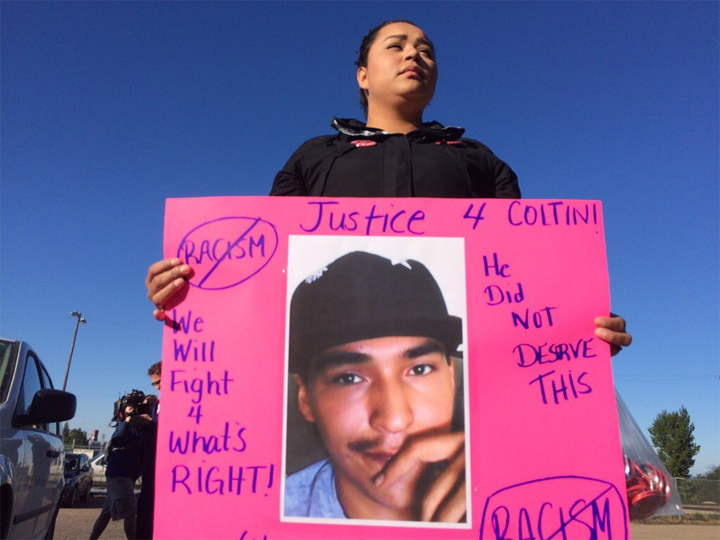For more than a week racial tensions have been rising following the fatal shooting of an indigenous man on a rural property near Biggar, Sask.

On August 9, Colten Boushie was shot and killed after the vehicle he was in drove onto a farm and a confrontation ensued.
The shooting garnered attention and debate online and through social media. It even caught the attention of Premier Brad Wall who condemned what he called “racist and hate-filled” posts.
Fifty-four-year-old Gerald Stanley has been charged with second-degree murder and made his second court appearance in North Battleford, Sask. Thursday, which was met with peaceful protests outside a number of provincial courthouses.
READ MORE: Gerald Stanley pleads not guilty as hundreds rally for Colten Boushie in North Battleford, Sask.
David Gerhard is a social media expert out of the University of Regina and sat down with Teri Fikowski on Friday to dig deeper into the implications of racial comments made through social media.

Q: First and foremost, are you surprised to see these comments showing up?
Q: We hear often the positives of social media, and there are many, but can you speak to the ‘dark side’ as well?
We imagine we’re arguing against somebody who holds these opinions and it’s very difficult to argue with someone you have so little in common with. It becomes very divisive, very quickly.
Q: The Premier has condemned these online comments. How unprecedented is it to reach the point for Brad Wall to address the issue?
A: This is now becoming quite a big deal because our larger communities are starting to recognize that these comments…are becoming more extreme and become more incendiary.
We’re seeing our politicians and community leaders thinking that some action needs to be taken which is very challenging because social media by its very nature is uncontrolled.
You say whatever you want in many cases anonymously and there doesn’t seem to be any repercussions so, this is an interesting next step.
Q: Now the Biggar case is before the courts but people online are already making judgments. What impact can this have on the courts?
A: The effect of social media on the court systems is an interesting and difficult question because it comes to the intended unbiasedness in the court system. If everybody is reading all these comments and imagining there are people in the world with these very extreme opinions, it will change the way they interact in the court system. Whether or not you can actually make any effect on the comments people make themselves is difficult to say.


Comments